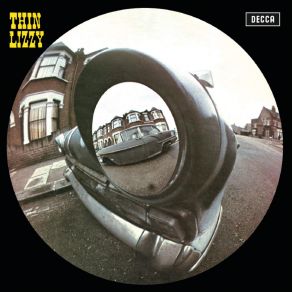Thin Lizzy
Download links and information about Thin Lizzy by Thin Lizzy. This album was released in 1971 and it belongs to Rock, Hard Rock, Metal, Heavy Metal, Pop genres. It contains 14 tracks with total duration of 55:06 minutes.

|
|
|---|---|
| Artist: | Thin Lizzy |
| Release date: | 1971 |
| Genre: | Rock, Hard Rock, Metal, Heavy Metal, Pop |
| Tracks: | 14 |
| Duration: | 55:06 |
| Buy it NOW at: | |
| Buy on iTunes $9.99 | |
| Buy on Amazon $9.49 | |
| Buy on Amazon $66.08 | |
| Buy on Songswave €1.55 | |
| Buy on Songswave €1.55 | |
Tracks
[Edit]| No. | Title | Length |
|---|---|---|
| 1. | The Friendly Ranger at Clontarf Castle | 3:02 |
| 2. | Honesty Is No Excuse | 3:42 |
| 3. | Diddy Levine | 7:07 |
| 4. | Ray Gun | 3:08 |
| 5. | Look What the Wind Blew In | 3:26 |
| 6. | Eire | 2:10 |
| 7. | Return of the Farmer's Son | 4:16 |
| 8. | Clifton Grange Hotel | 2:31 |
| 9. | Saga of the Ageing Orphan | 3:40 |
| 10. | Remembering, Pt. 1 | 6:02 |
| 11. | Dublin | 2:30 |
| 12. | Remembering, Pt. 2 (New Day) | 5:07 |
| 13. | Old Moon Madness | 3:55 |
| 14. | Things Ain't Workin' Out Down at the Farm | 4:30 |
Details
[Edit]Thin Lizzy were originally conceived as a power trio in the image of Cream and the Jimi Hendrix Experience, but Eric Bell lacked the charisma of these groups' guitarists, forcing vocalist/bassist Philip Lynott to take center stage from day one. Despite his already poetic, intensely personal lyrics, Lynott was only beginning to develop as a songwriter, and the band's unfocused, folk-infused early efforts are a far cry from their mid-'70s hard rock glory. Recorded on a shoestring budget, their self-titled debut is surprisingly mellow; many songs, such as "Clifton Grange Hotel" and "The Friendly Ranger of Clontarf Castle," sound confused and unfinished. Quiet ballads like "Honesty Is No Excuse," "Eire," and "Saga of the Ageing Orphan" abound, while supposed rockers such as "Ray-Gun" and "Return of the Farmer's Son" fall remarkably flat. In fact, Lizzy only bare their claws on "Look What the Wind Blew In," a gutsy rocker that hints at things to come. Four bonus tracks (originally released as singles) were added to this CD reissue, and of these "Things Ain't Working Out Down at the Farm" is quite memorable, while the mournful "Dublin" contains Lynott's first great lyric.